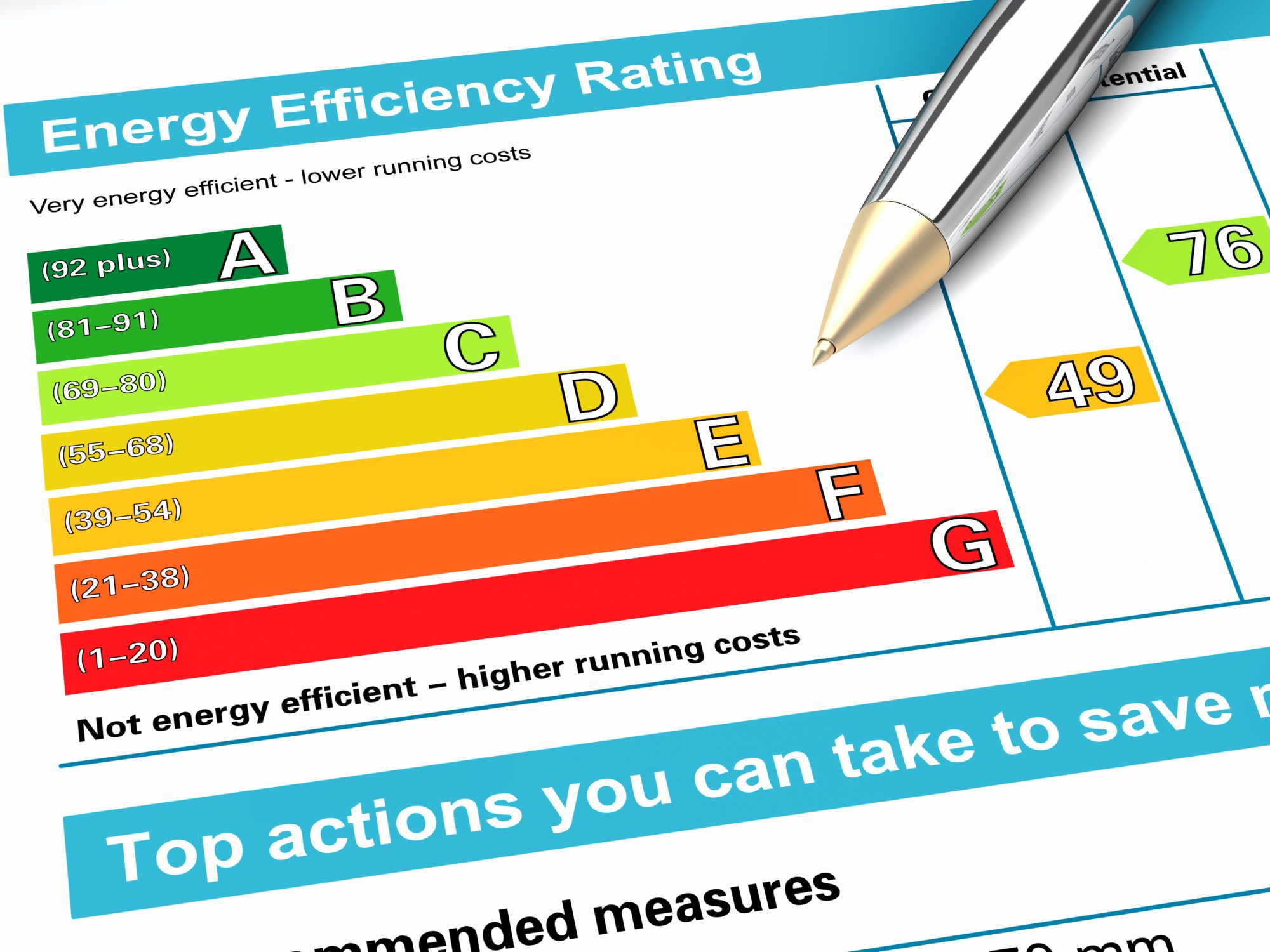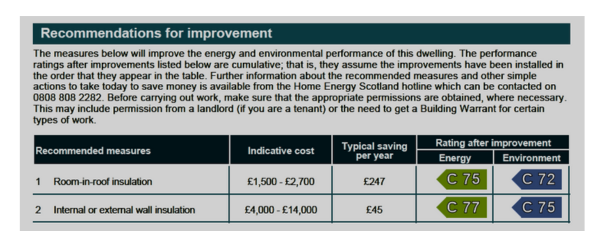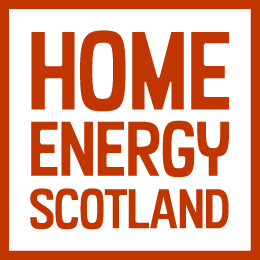EPC rating (Energy Performance Certificate)

On this page:
- What is an EPC rating?
- How is an EPC rating worked out?
- What are the different EPC ratings?
- What is energy efficiency?
- How to improve your EPC rating
- How to get an Energy Performance Certificate
- Energy Performance Certificate cost
- How long is an Energy Performance Certificate valid for?
- Can an EPC rating affect my mortgage?
What is an EPC rating?
An EPC (Energy Performance Certificate) rating tells you how energy efficient a building is. For this reason, it’s also referred to as an energy efficiency rating.
Additionally, an EPC will tell you the typical energy costs for the property. EPC ratings go from A (very efficient; low running costs) to G (very inefficient; high running costs).
EPC ratings work a lot like exam grades. An EPC assessor looks at how energy efficient different parts of your home are. This includes your heating system, your walls, and even your light bulbs.
The EPC assessor then calculates a score out of 100. This is known as the Standard Assessment Procedure (SAP) score. Using the SAP score, the assessor works out the EPC rating.
You’ll find your home’s EPC rating on its Energy Performance Certificate (EPC). Your EPC is valid for ten years. Any certificate older than this is not considered a valid EPC.
How is an EPC rating worked out?
There are two methods for working out a property’s energy efficiency:
- The Standard Assessment Procedure (SAP)
- The reduced data Standard Assessment Procedure (rdSAP)
Both these methods involve a specialist assessing your home, then making calculations to come up with a score. The major difference between them is the amount of information that the assessor can access.
With the SAP, the assessor looks at architectural plans and other construction documents.
The Standard Assessment Procedure is used for new dwellings.
On the other hand, with an rdSAP, the assessor doesn’t have access to these documents. Instead, they visit the property and make calculations based on what they can see.
The reduced data Standard Assessment Procedure is used for existing dwellings.
You can find out more in-depth information about SAP and rdSAP on the gov.uk website.
What are the different EPC ratings?
An assessor will work out a SAP or rdSAP score for your property. The score will be out of 100, with 100 being the most energy efficient. The SAP/rdSAP score will determine the EPC rating.
| EPC rating | SAP or rdSAP score |
|---|---|
| A | 92 – 100 |
| B | 81 – 91 |
| C | 69 – 80 |
| D | 55 – 68 |
| E | 39 – 54 |
| F | 21 – 38 |
| G | 1 – 20 |
For example, if your SAP/rdSAP score is 71, then your EPC rating is C.
If your SAP/rdSAP score is 25, then your EPC rating is F.
What is energy efficiency?
An EPC rating tells us about a property’s energy efficiency, but what does ‘energy efficiency’ actually mean?
At its simplest, energy efficiency means getting the result we want by using as little energy as possible.
Let’s take heating our home as an example. The result we want is a warm home. An energy efficient system would be one where we can get a warm home using as little energy as possible.
A good example of an inefficient system would be a wall that doesn’t have any insulation. We use energy to run our heating. Without insulation, a lot of that heat is lost through the wall. This means we have to use more energy to replace the lost heat.
A good example of an efficient system would be an air source heat pump. You don’t need to put much electricity into a heat pump to get a lot of heat out. Every kilowatt (kW) of electricity you put in gives you 3kW of heat.
How to improve your EPC rating
Improving your EPC rating means making changes to your home’s insulation and/or heating system. What changes you make depend on what you already have in place.
For example:
- You may already have loft insulation but no wall insulation
- You may have a gas boiler, but it may be old and inefficient
If you already have an EPC, it will tell you how to improve your rating. You’ll find a ‘Recommendations for Improvement’ section on page two. Your EPC lists the improvements in order of importance, so the ones at the top of the list will make the biggest difference to your rating.
The ‘Recommendations for Improvement’ section also tells you what rating you’ll reach by making the suggested changes:

In this example, installing room in roof insulation will raise the rating to C75.
If you don’t already have an Energy Performance Certificate, you can find out how to improve your EPC rating by:
- Speaking to Home Energy Scotland. Their advisors will help you work out what changes will make your home more energy efficient. You can call them for free on 0808 808 2282. You can also contact them through their online form.
- Getting an EPC. See the How to get an energy performance certificate section below.
How to get an Energy Performance Certificate
Your home may already have an EPC. Checking for this first can avoid the cost of getting a new certificate. An EPC should be part of the Home Report you receive when you move into a property.
If you rent your home, your landlord or estate agent may have displayed your EPC certificate in your meter cupboard.
You may also be able to view your EPC online. Visit the Scottish EPC register website to search via your postcode.
If you don’t have an EPC, you can arrange for an EPC assessor to produce one for your property. The Scottish EPC register lets you search for an assessor by location.
Energy Performance Certificate cost
EPC costs vary, depending on the size and type of your property. EPC prices usually range from £60 to £120.
We would advise contacting at least three different assessors for quotes. Remember, you can search for assessors using the Scottish EPC register website.
How long is an Energy Performance Certificate valid for?
An EPC is valid for ten years. When it runs out, you’ll need a new one if:
- You’re selling your home
- You’re renting the property to a new tenant
It’s also a good idea to get a new EPC after you’ve made any energy efficiency improvements to your home. When selling or renting your property, a new EPC gives potential buyers or renters the most up-to-date information.
Can an EPC rating affect my mortgage?
A number of high street banks have announced* they will look at a property’s EPC rating when calculating mortgage loan decisions.
Halifax, Lloyds and the Bank of Scotland will look at a property’s energy costs when analysing applications from customers. Homes with a higher energy efficiency rating of A or B are more likely to receive a bigger loan.
When a home is sold it must come with an Energy Performance Certificate which indicates the properties energy efficiency.
*December 2024

Changeworks delivers Home Energy Scotland in the south east and Highlands and Islands on behalf of the Scottish Government and Energy Saving Trust.
As well as providing free, impartial expert advice to thousands of people every month to help them to keep warm in their homes for less, they identify funding opportunities for households seeking to install energy efficiency measures.
For more information, give Home Energy Scotland a call on 0808 808 2282 or email and the team will be happy to help you.
Useful pages
Is this page useful?